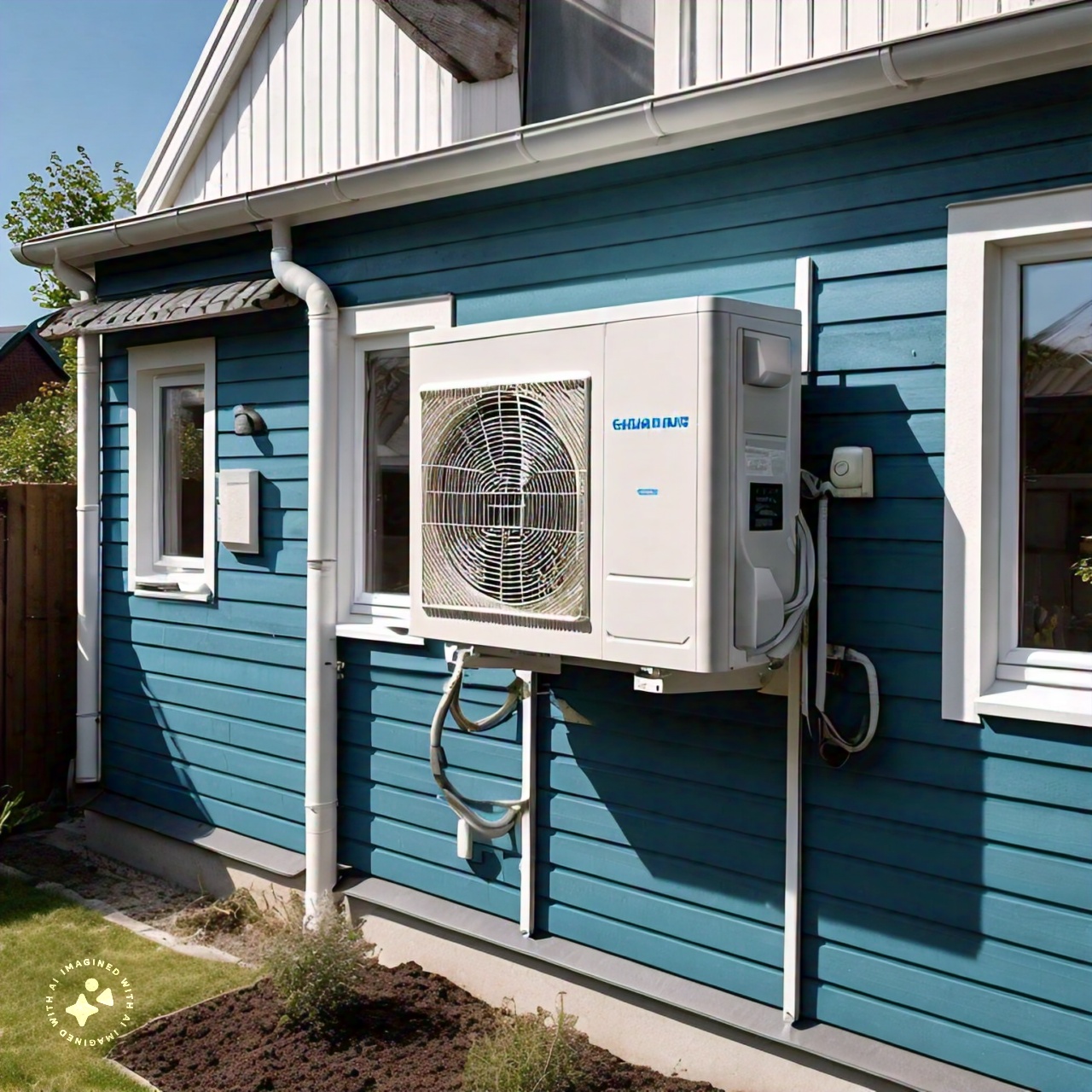If you are dealing with a leaking heat pump, you have landed on just the right page. Your heat pump’s sudden urge to spill water indoors is not a good sign. But neither does it indicate a fatal flaw. Since the heat pump works more or less on the same principle as the air conditioner, it suffers from almost the same set of problems, one of which being leaking water inside.
The Importance of Regular AC Maintenance
Regular AC maintenance is crucial to ensure the efficient and effective operation of your air conditioning unit. Neglecting maintenance can lead to reduced airflow, increased energy bills, and even complete system failure. To avoid these issues, it’s recommended to have your AC unit serviced at least once a year by a professional technician. Additionally, you can perform simple tasks such as cleaning the air filters, coils, and fan to keep your AC running smoothly. By prioritizing AC maintenance, you can enjoy a cooler and more comfortable living space while also extending the lifespan of your air conditioning system.
Causes Of Heat Pump Leaking Water Indoors
If your heat pump is dripping water or forming puddles indoors, it could be because of one or more of the following reasons:
1. Problems With Condensate Drainage System – The heat pump extracts heat from one place and transfers it to another. In summers, it extracts indoor heat and transfers outside, and in winters, it does the exact opposite. Noticeably, this process leads to the formation of condensate, which is typically collected in a tray within the system and from there drained outside via the drain line. Sometimes problems with the condensate drainage system lead to water backing up, which then spills or dribbles indoors. Here is a list of things that could go wrong with the condensate drainage system:
- Cracks Or Holes In Drain Pan – The drain pan or the drip tray can develop cracks or holes due to corrosion. If these gaps are not sealed, or the tray is not replaced, the water that collects in it will drip indoors.
- Damaged Drain Hose – If you are not into routine heat pump maintenance, it is quite possible that you might be dealing with a loose or damaged drain pipe. If it has come loose, it will require tightening. In case it is damaged, the damaged part will need replacement.
- Blockage In Drain Line – Dust and debris find their way inside every system, and at times even inside confined places, the drain line is one such place. Any blockage inside it will prevent proper draining of the condensate due to which it spills indoors. Clearing out the blockage in the line will resume the drainage function.
2. Frozen Coils – At times, ice forms on the coils. If it is minimal, it will not cause any trouble when it melts. Nonetheless, when the ice formation is massive, its melting will cause puddles on the floors and seepage on the walls. The reason behind frozen coils could be any one of the following:
- Low Refrigerant Level – Often, the refrigerant line develops holes or cracks due to corrosion. Mostly, this happens in those cases where maintenance of the system is not given its due importance. From these holes and cracks, the refrigerant flows out — low coolant level results in freezing coils. Over time, the buildup increases and leads to a watery mess when it finally melts. The only way to rectify this situation is by patching the gaps in the refrigerant line and then topping it up to the prescribed level. This is a job for the trained technicians only and strictly not a DIY activity.
- Restricted Airflow – Another reason for frozen coils is restricted airflow. When there are impediments in the flow of air such that the system cannot breathe properly, it causes the extracted moisture to freeze on the coils. The evaporator coil is very cold to cool the air passing over it, but since the flow of air is negligible, it freezes whatever little moisture it draws out. This ice continues to build and causes trouble later. Typically restricted airflow problems occur due to dirty air filters. Replacing the air filter with a new one before it becomes clogged is the best way to ensure that such things don’t reoccur.
What To Do When You Notice Heat Pump Leaking Water
Water and electrical systems are an extremely bad combination. They do not go hand in hand. The good thing about heat pumps is that there is a proper mechanism to drain the water or moisture that is formed during its operation. Yet, if at any point in time you notice that your heat pump is leaking water, follow these steps:
- Switch off the heat pump and disconnect it from its power source.
- Check the drain hose. If it has come loose, push it back in firmly until it’s back in the correct position.
- If the drain pipe is clogged, using a wet and dry vacuum pump, suck out the blockage.
- If the drainpipe is not the cause of the problem, call your trusted HVAC contractor to send over a technician.
Is Every Water Puddle A Cause For Concern?
Water puddles indoors are a cause for concern. It is mainly because there are several electrical appliances indoors, and when water comes in contact with any of them, it may result in a short circuit. Similarly, water can damage the floors and walls, and in case it drips on your furniture, it too can get damaged.
Water puddles outdoors are another story. As a part of standard operations, the heat pump thaws out the outdoor unit during winters. This defrosting leads to the formation of outdoor water puddles. These are nothing to be worried about. Nonetheless, to avoid accidents like slipping and getting hurt, it would be best to drain it away as the puddle may freeze again when the temperature drops.
Takeaway
First off, don’t panic when you see the heat pump leaking water. To be on the safer side, disconnect it from the power source and contact your HVAC technician. It is best that you let the trained technician troubleshoot the problem instead of taking matters into your own hand.
The technicians at Aztil Air Conditioning excel in heat pump installation, repairs, and maintenance. If you notice the heat pump installed in your Florida home leaking water, give us a call immediately. Our prompt quality services at an affordable cost are bound to impress you. Our offices are open 24/7, so you can contact us at any time. To book an appointment, give a call at +1-888-729-8452.





